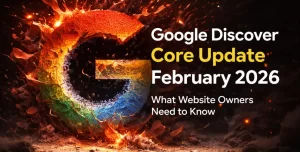
How AI in SEO is Reshaping Content, Keywords, and Rankings
Table of Contents
Introduction
Welcome to WikiGlitz! We’ve brought you this in-depth blog to explore how artificial intelligence is reshaping the world of SEO. Whether you’re a digital marketer, a business owner, or a content strategist, understanding how ai in seo works is now essential. From content creation to keyword research and search rankings, AI is transforming how SEO strategies are planned and executed.Key Takeaways
- AI in SEO empowers smarter content strategies, personalized search experiences, and better performance insights.
- Tools like ChatGPT and AI-based SEO platforms are changing how we improve websites and create content.
- Balancing automation with human creativity ensures long-term SEO success in an AI-driven landscape.
What Does AI in SEO Actually Mean?
AI in SEO refers to the application of artificial intelligence technologies — like machine learning, NLP (Natural Language Processing), and predictive analytics — to improve and automate various SEO tasks. I Instead of relying solely on manual research and guesswork, AI helps marketers understand search intent, optimize content, and adapt to algorithm changes. The most common uses of ai for seo include:- Content optimization based on user behavior
- Predictive keyword suggestions
- Voice and visual search optimization
- Real-time SEO audits and recommendations
How Is AI Changing Content Optimization?
One of the most immediate impacts of AI SEO optimization is on ai content optimization. In the past, content mainly focused on using enough keywords and basic SEO rules. Today, AI helps you craft content that not only ranks but deeply satisfies search intent. Here’s how AI improves content:- Suggests topics based on real-time search trends
- Analyzes top-ranking pages to identify content gaps
- Recommends tone, structure, and headings
- Detects outdated information and recommends updates
What are the top AI-powered SEO tools to use in 2025?
The surge in ai seo tools has given marketers a competitive edge. Some of the best AI tools for SEO available today include:- SurferSEO: These tools give instant scores and tips to help improve your content.
- Frase.io: Creates briefs and compares your content against top SERP competitors.
- Clearscope: Helps you write semantically rich content.
- ChatGPT for SEO: Assists in drafting, rephrasing, and idea generation.
- Alli AI: Automates technical SEO at scale for large websites.
Can ChatGPT Be Used for SEO?
Yes, and it’s becoming more popular by the day. With AI in SEO, keyword planning now focuses more on what users really want.- Brainstorming blog titles and outlines
- Generating content ideas for featured snippets
- Drafting product descriptions or FAQs
- Refining headlines, intros, and meta tags
- Rewriting content to improve clarity or tone
How Does AI Enhance Keyword Research?
Keyword research has traditionally focused on volume and competition. Machine learning in SEO doesn’t just monitor — it learns and updates on its own. AI tools analyze:- Semantic relevance and keyword context
- How keywords perform in similar content
- Long-tail opportunities based on user behavior
- Competitor keyword gaps
What Role Does Machine Learning Play in SEO?
Machine learning in SEO brings dynamic, data-driven decision-making to your digital strategy. These systems learn from search data and performance metrics to suggest what content should be created or improved. Applications include:- Personalizing search results based on past behavior
- Predicting which content will rank best
- Automatically adjusting site elements based on CTR and engagement
- Recommending technical fixes like improving Core Web Vitals
Is AI Replacing SEO Professionals?
Not at all — it’s redefining their role. The rise of seo ai tools means that SEO professionals can shift from manual work to high-level strategy and content quality. AI takes care of:- Competitor analysis
- Meta tag suggestions
- Schema markup automation
- Keyword clustering
- E-E-A-T (Experience, Expertise, Authoritativeness, Trustworthiness)
- Content direction
- Brand voice
- User experience
How Can You Integrate AI into Your SEO Strategy?
To leverage AI, start by identifying the SEO tasks that are time-consuming or repetitive. Here’s a quick framework:- Audit your content using tools like SurferSEO or Clearscope
- Use an AI-powered SEO content tool to find topic ideas that match what users are searching for.
- Optimize your existing content using real-time suggestions
- Automate keyword clustering with semantic grouping
- Monitor performance and adapt using machine learning analytics
What Pitfalls Should You Avoid with AI in SEO?
While AI can elevate your strategy, misusing it can do more harm than good. Be cautious of:- Over-reliance on AI-generated content
- Publishing without human editing or fact-checking
- Ignoring Google’s helpful content updates
- Using AI just to produce volume rather than quality
Does AI Align with Google’s Helpful Content Guidelines?
Yes, when used properly. Google’s guidelines prioritize content that is helpful, original, and written by people for people. But AI can support that mission. Here’s how ai in seo aligns with Google’s standards:- Detects and removes fluff or repetition
- Identifies gaps in content relevancy
- Ensures content matches the searcher’s intent
- Enhances readability and formatting
- Helps maintain fresh, updated pages
Conclusion
We hope this comprehensive guide helped you understand how AI in SEO is reshaping content, keywords, and rankings across today’s digital marketing landscape. From predictive keyword research to automated content scoring and real-time optimization, artificial intelligence is not just a trend — it’s a new standard. SEO professionals who learn how to integrate AI smartly will gain a major competitive advantage. The future of SEO belongs to those who can blend the speed and precision of AI with the creativity and experience of human expertise. Follow WikiGlitz for more insights into AI, SEO, digital marketing, and future-ready strategies that actually work. Source: Content adapted from insights published by Search Engine Land.FAQs
1. What is AI in SEO?
AI in SEO means using technologies like machine learning and natural language processing to make SEO more effective. It helps automate tasks like keyword research, content improvement, and tracking performance, while also making content more relevant to what users are actually searching for.2. How does AI help with content optimization?
AI tools assist with content optimization by analyzing top-performing content, understanding search intent, suggesting structure improvements, and identifying keyword gaps. This makes your content simple for users to read and also well-optimized for search engines.3. Can AI tools replace SEO professionals?
No, AI tools do not replace SEO professionals. Instead, they boost efficiency by handling repetitive tasks and providing useful insights based on data. Human expertise is still essential for strategy, creativity, and maintaining brand voice.4. Which AI-powered SEO tools are the most effective to use in 2025?
Some of the top AI SEO tools in 2025 are SurferSEO, Frase, Clearscope, Alli AI, and ChatGPT for SEO. These tools support content creation, technical audits, and real-time optimization.5. Is AI-generated content good for SEO?
AI-generated content can support SEO if it’s high-quality, relevant, and edited by humans. It should follow Google’s helpful content guidelines and clearly show expertise while providing real value to users.Want to keep up with our blog?
Our most valuable tips right inside your inbox, once per month.
WikiGlitz Team
Welcome to WikiGlitz, your ultimate destination for tech insights and innovation. Our expert team is dedicated to delivering free resources and professional advice on various technology topics, including Artificial Intelligence, Cyber Security, Cloud Computing, and more. We strive to empower our readers with up-to-date information and practical guidance, ensuring you stay ahead in the rapidly evolving tech landscape. At WikiGlitz, we are passionate about making complex technology accessible to everyone. Our team of seasoned experts curates content that is both informative and engaging, helping you understand and leverage the latest tech trends. Whether you're a tech enthusiast or a professional, WikiGlitz is your go-to source for reliable, expert-driven content. Join us on this journey to explore and embrace the future of technology.





